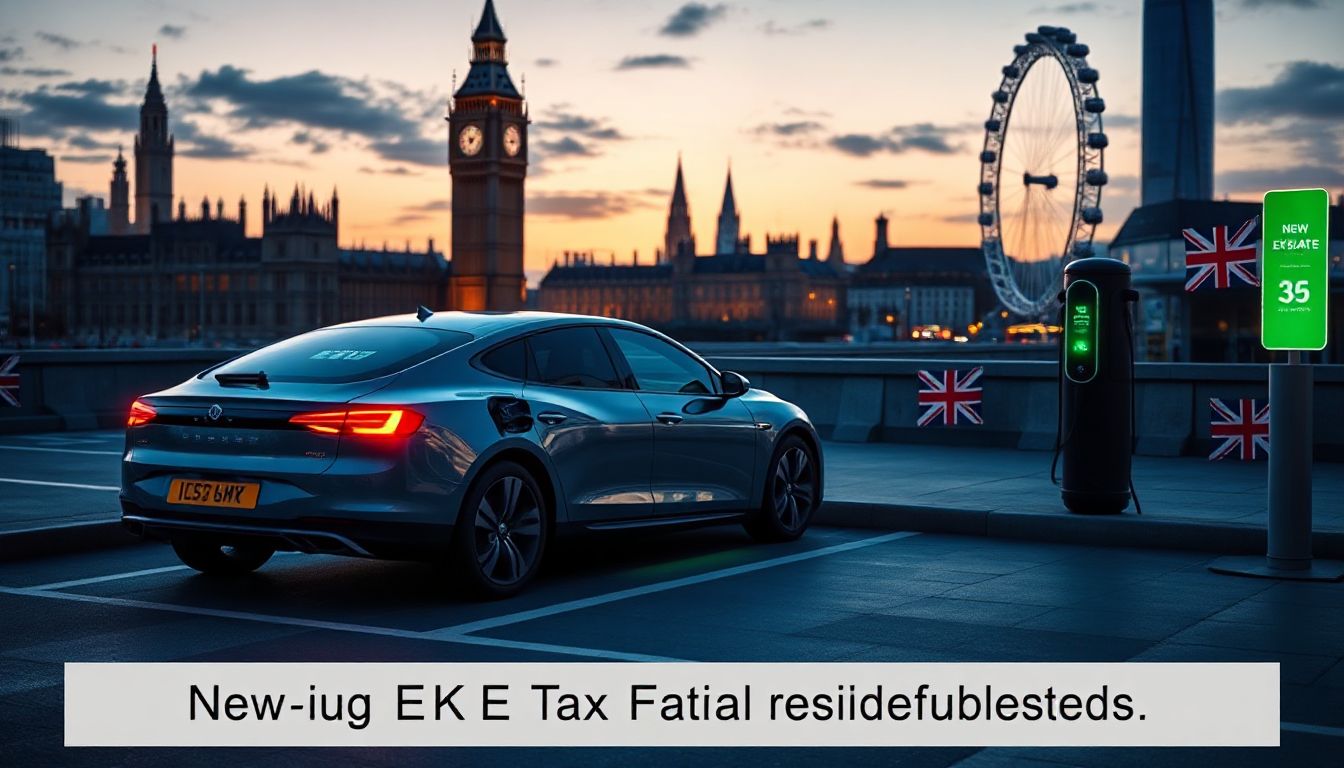Introduction
The UK is racing towards a cleaner future by promoting electric vehicles (EVs). As part of its push to cut pollution and meet climate goals, new policies are being rolled out. These changes in taxes could greatly affect how much you pay for an EV, whether you own one now or plan to buy. Understanding these shifts will help you save money and stay within the law.
Current EV Tax Landscape in the UK
Overview of Existing EV Tax Benefits
Right now, the UK offers several perks for EV owners. These include lower Benefit-in-Kind (BiK) tax for company cars, reduced Vehicle Excise Duty (VED), and government grants. For example, EVs often fall into a lower tax band, making them cheaper to run than petrol or diesel cars. These incentives have played a big role in boosting EV adoption, with more drivers choosing electric every year.
Limitations and Challenges in the Existing System
But, these perks aren’t permanent. As more drivers go electric, authorities are reviewing policies. Some benefits are already shrinking or disappearing. For fleet managers and consumers, this can create confusion and might make EVs less attractive financially. The challenge now is balancing incentives with the goal of making EVs self-sustaining in the market.
Key Changes to UK EV Tax Policy in 2025
Introduction of New Vehicle Excise Duty (VED) Rates for EVs
Starting in 2025, the VED rates for EVs are changing. Instead of being free or very cheap, some EVs will face higher annual charges. For example, premium electric models with high list prices will pay more, just like traditional cars. This change aims to encourage affordable EVs that don’t burden the road tax system more than petrol or diesel vehicles.
Revision of Benefit-in-Kind (BiK) Tax Rates
The BiK tax rate for company EVs is increasing gradually. Previously, many drivers paid only a small percentage of their car’s value in tax. Now, rates are phased in, making electric company cars a bit more costly. For example, if you’re a business driver, expect to see a rise from around 2% to 8% of the car’s list price in taxable benefits. This could influence your decision on whether a company car makes sense.
Elimination of Grants and Incentives
The government is also winding down the EV grants you might have heard about. These subsidies for new EV purchases are being phased out, which means fewer discounts for buyers. Expect that the upfront cost of an EV could be higher now. This shift might slow buying but pushes manufacturers to produce cheaper models.
Impact on Commercial Vehicles and Fleets
For businesses with large vehicle fleets, the tax rules are changing too. Certain incentives are disappearing, and new rules introduce higher taxes on electric commercial vehicles. Companies will need to rethink their fleet strategies, balancing tax costs with environmental targets.
Implications for Consumers and Businesses
Cost Analysis and Financial Planning Tips
With these tax changes, calculating total ownership costs becomes vital. Add up purchase price, expected fuel savings, and new taxes. Consider acting quickly to buy EVs before tax hikes hit full force. Keeping an eye on incentives may help you get the best deal now.
Transition Strategies for Fleet Operators
If your company runs a fleet, now’s the time for a strategy upgrade. Use remaining incentives while planning for higher tax costs later. Focus on choosing affordable electric models that maximize savings. Also, think about mixed fleets that blend electric and traditional vehicles to ease the transition.
Environmental and Policy Considerations
These tax updates align with the UK’s goal to cut greenhouse gases. They encourage more affordable EV options and help shape policies that push for cleaner transport. Taxes are a tool to drive faster adoption of EVs, which benefits everyone by lowering overall emissions.
Expert Insights and Industry Perspectives
Quotes from Industry Leaders and Policy Experts
Leading voices in transportation say these changes are necessary but could slow EV uptake unless prices drop. Some experts see the new VED as a way to discourage overly expensive electric cars that don’t fit the average driver’s budget.
Case Studies of UK EV Market Adaptation
Many companies are already adjusting. For example, a logistics firm switched to a mix of electric and hybrid vans to keep costs down amid tax hikes. Others are speeding up their EV purchases before tax increases stay in place.
Future Outlook and Expected Developments
Analysts predict more reforms are coming, with the government aiming to make EVs more accessible. In the coming years, look for lower-cost models and more targeted incentives to support mass adoption.
Actionable Tips for Navigating the Tax Changes
- Keep updated on new deadlines and policy shifts.
- Talk to an accountant or tax advisor for tailored advice.
- If considering an EV, buy or lease sooner rather than later.
- Explore different financing options to offset higher costs.
- Research affordable EV models that qualify for remaining grants.
Conclusion
The UK’s EV tax landscape is shifting fast in 2025. While some incentives are ending, new policies aim to create a fairer, more balanced system. Whether you’re a driver or a business owner, planning ahead will help you save money and stay legal. Embracing these changes means staying informed and acting smart. As the UK pushes ahead with its climate goals, electric vehicles remain an exciting and vital part of the journey toward a greener future.




